NSU Where dreamy career is nurtured
Published:
2019-11-24 08:30:11 BdST
Update:
2024-04-20 17:22:17 BdST
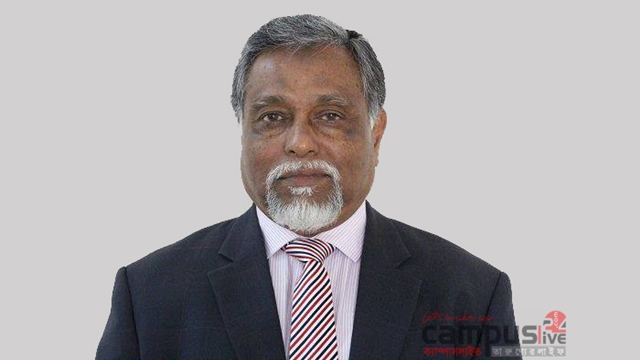
Shantha Nath Chowdhury: Professor Atiqul Islam is the Vice-Chancellor of North South University (NSU), one of the top universities in Bangladesh. He obtained his B Com Honors and M Com degrees from the University of Dhaka. He also holds an M Com from the University of New South Wales and a PHD from the University of Sydney.
He previously held the positions of Pro Vice Chancellor at Edith Cowan University in Australia, Dean, Business and Government at the University of Canberra, and Head of School of Commerce at the University of South Australia. He also served as an academic at the Universities of Sydney, New South Wales, Curtin University, National University of Singapore, Canterbury University (NZ) and the University of Dhaka.
He served as a lecturer in Accounting at Dhaka University from 1973 to 1975, was a senate member of Dhaka University in 1974, and was the elected Vice President of Dhaka University Commerce Faculty Students’ Association from 1972 to 1973. He is a member of the institute of CA in Australia and also a fellow of CPA in Australia. He has a very strong track record of teaching, research and internationalization spanning over the last 25 years.
He provided strategic leadership for departments, schools faculties and universities. He developed strategic and operational plans with quantifiable goals for teaching, research and internationalization. He has an exceptional record of developing beneficial relationships between universities and the government, industry, professions, other stakeholders and the communities.
In his various assignments professor Islam strengthened accountabilities, maintained effective budget and financial management, ensured effective performance management of staff developed and implemented ambitious student equity and access agenda and ensured compliance with all regulations including occupational health and safety and equal opportunity. Professor Islam has published in national and international refereed journals and supervised a large number of higher degree dissertations.
He has delivered keynote speeches and acted as session chair at international research conferences. Professor Islam has taught in multi-cultural environments in several countries. Internationalization of the curriculum was part of his brief for the last 25 years. He has a wealth of experience in recruiting foreign staff and students, negotiating overseas programs, managing and teaching overseas teaching posts and teaching out overseas programs.
He was in the international activities committee in all his last six assignments. As a Dean and Pro Vice-Chancellor, he had the responsibility to internationalize the curriculum, recruit overseas staff and achieve the optimum learning outcome in highly internationalized schools and faculties.
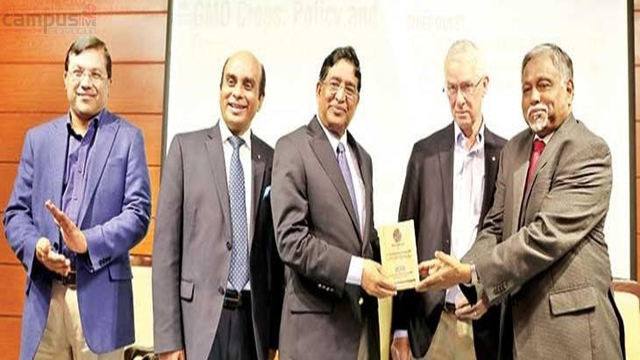
campuslive: A common trend for Bangladeshis is to go abroad, as you did. What made you come back to Bangladesh, and why NSU?
Professor Atiqul Islam: I don’t think it’s the same. When I went to overseas, I went to do a Ph.D. with a scholarship. I had no intention to stay there, and I came back. I worked for seven months, but the problem was, they could not pay me any money at University of Dhaka. So, I was forced to leave the country because I could not live any longer without the pay. That’s the honest truth. That’s why I went to New Zealand as a visiting lecturer. Then, I heard that University of Dhaka had hired someone in my place. So, I was hurt. So, I stayed back there for a while, and then I went to Australia. The rest is well known. The reason I came back to Bangladesh was because I always had a strong feeling for Bangladesh.
I always wanted to come and contribute in some way. Look, I got free education from this country. So, I had this sense of indebtedness. So, I decided to spend some years in Bangladesh, trying to elevate at least one of the university’s work place here. At this stage I thought that I had enough experience and knowledge to make a difference to whichever university I work for in Bangladesh, and I picked North South University because I have studied in a public university. It was my honest belief that given the current culture in the public universities,
I would be a misfit there. I would not be able to do much, because they are highly politicized. They have very strong stakeholder groups, etc. So, I started looking at the private sector universities. Then, I found that North South was the university that had everything going for it. In the sense that this university had an infrastructure. It had a brand and this university has financial resources. This university has intellectual resources among its staffs. So it was my belief that if I could introduce a good work culture here, with a good plan using systematic steps, then this university would rise up the fastest. That was the main reason. That was the time for the university to take off, and I wanted to be the pilot during its takeoff.
b Having held leadership positions in so many different universities must have given you a broad view about international education. Can you comment on that? Professor Atiqul Islam: The phrase “International Education” has different meanings. Some emphasize one part to the exclusion of the other parts. But in my view, International Education is the internalization of the diversities of universities in three different regions in the world. Western universities are run in a particular culture.
Then in the oriental ones: Japanese, Korean ones, Taiwanese ones, Chinese ones, Singaporean ones, they have a different philosophy; probably, different approaches in terms of tertiary education. Then we have got the traditional, Indian Sub-continental type of universities. So, these are the three different approaches to university education. And they have different cultures within the universities, within the countries. So, it’s good to be able to bring in this reflection to Bangladesh. To assume what will be the approach in eastern universities, what will be the approach in western universities.
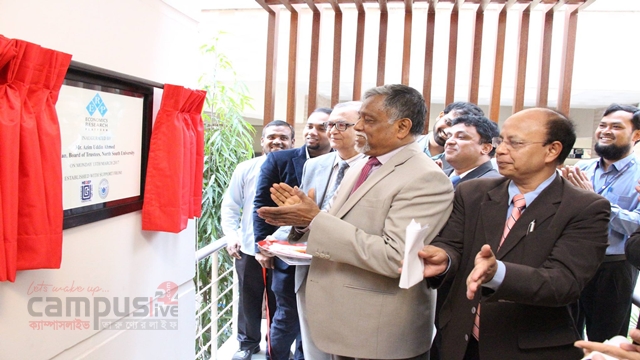
What are the things that we can adopt in Bangladesh. In that sense I can readily visualize what one of the western universities has done in a particular situation, and the latter ones. When we are in the Indian Sub-continent in terms of tradition, what would work here and what would not. The other side of internationalization is basically how you internationalize your curriculum. That is the starting point. Then, you need to have international student exchanges. How you will be able to go and learn outside of your country. Your classroom should have students from more than one country, not just the local ones. Same goes for staff. You have to hire your staff, who has overseas experience among the local people. At the same time you have to attract staff from other countries. So, it is the curriculum, it is the students, it is the staff that you have to internationalize.
campuslive: During your tenure at NSU, what has been your biggest challenge?
Professor Atiqul Islam: I think if you look at events and situation post “Holey Artisan”, it was a challenge to safeguard the reputation of the university, in a way to save the university. It is not easy to face a challenge of that sort. Then I faced the challenge of changing the work culture. Probably North South University has the best work culture in the country. But still, it is not the best that you can have. We need to improve it. We have a problem of delegation. You cannot delegate work to someone and have peace of mind that it will be done in the required way. That is a problem. The problem of system, once you initiate something, you put it on a track.
You believe that you do not need to travel, but it does not happen here. You need to keep on pushing, pushing and pushing. Otherwise, it stalls. So, it is not only inside the university, it also happens outside the university. It is not only the problem with the university, it is also a problem with other agencies and communities. So, it does not automatically go step-by-step. The other problem is too much paperwork. Everything needs to be done by hard copy. Every piece of paper needs to be signed. Why cannot only one person have all the control of these things? Why are we having two-three people for one task? We are having four-five people signing the same thing. And the centralization that goes on in this university.
I have to look at the absolute minute details and very small amounts. I remember, one Department Chairmen sent me a reimbursement of BDT. 750 for laundering the lab coats. When those kind of things come to the Vice-Chancellor, sometimes it is hard to keep patience. So, the centralization, the Vice-Chancellor has to sign everything. I do not think that leaves the Vice-Chancellor enough time to think creatively, and come up with plans and programs and even to do the outside liaising, as much as it is needed in this country. So, centralization is a big problem.
campuslive: During your tenure at NSU, what has been your biggest challenge?
Professor Atiqul Islam: I think if you look at events and situation post “Holey Artisan”, it was a challenge to safeguard the reputation of the university, in a way to save the university. It is not easy to face a challenge of that sort. Then I faced the challenge of changing the work culture. Probably North South University has the best work culture in the country. But still, it is not the best that you can have. We need to improve it. We have a problem of delegation. You cannot delegate work to someone and have peace of mind that it will be done in the required way.
That is a problem. The problem of system, once you initiate something, you put it on a track. You believe that you do not need to travel, but it does not happen here. You need to keep on pushing, pushing and pushing. Otherwise, it stalls. So, it is not only inside the university, it also happens outside the university. It is not only the problem with the university, it is also a problem with other agencies and communities. So, it does not automatically go step-by-step. The other problem is too much paperwork. Everything needs to be done by hard copy. Every piece of paper needs to be signed. Why cannot only one person have all the control of these things? Why are we having two-three people for one task? We are having four-five people signing the same thing. And the centralization that goes on in this university.
I have to look at the absolute minute details and very small amounts. I remember, one Department Chairmen sent me a reimbursement of BDT. 750 for laundering the lab coats. When those kind of things come to the Vice-Chancellor, sometimes it is hard to keep patience. So, the centralization, the Vice-Chancellor has to sign everything. I do not think that leaves the Vice-Chancellor enough time to think creatively, and come up with plans and programs and even to do the outside liaising, as much as it is needed in this country. So, centralization is a big problem.
campuslive: According to you, do you think that you have any advantages of being bi-cultural or bi-lingual. If yes, what are those?
Professor Atiqul Islam: When you work in different cultures, you know how to include internationalization in education. But, it is an advantage to know about systems as long as you realize that best solutions there cannot be imported here and applied. Because everything is culturally related. 10 ISSUE 9 | MAY-JUN ‘19 NSU Alumni Feature Md. Shajedur Rahman Shawon came to NSU to pursue a Master's in Public Health (MPH) after completing his MBBS from Dhaka Medical College in 2011.
He secured the first position in the admission test and was offered a scholarship from the university. The MPH program at NSU has a very flexible timetable, which allowed him to work for international public health organisations while studying for his MPH. Mr. Rahman achieved a CGPA of 3.97 in his course. After finishing his studies at NSU, he got a scholarship from the Swedish government to study for an MSc at Karolinska Institute, which is one of the best medical universities in the world. With the knowledge and skills, he gathered from NSU, he excelled both at coursework and research and completed the course with distinction.
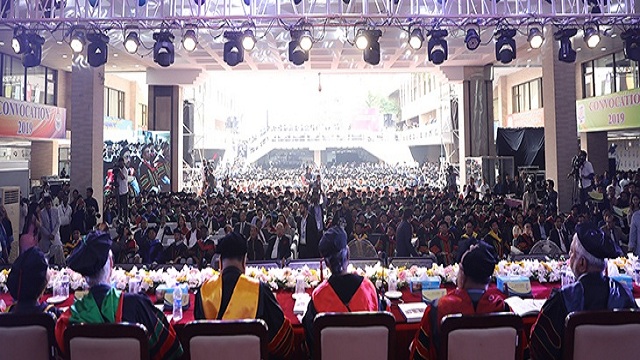
In the meantime, Md. Shajedur Rahman Shawon also did an internship at the University of Cambridge. In 2016, he got admited into a PhD program at Oxford University with a full scholarship. He going to finish his PhD this year. His research focuses on how our body size in early life can determine our future risk of developing diseases like diabetes and breast cancer as adults. He has published several high impact papers from his research work. He also received advanced training in genetic epidemiology, big data science, and medical statistics. You cannot simply ignore the cultural side. Let me give you an example. I have been trying to implement the system of academic performance management for the last two years.
It has not been able to be resolved yet. But it was so simple in the university where I worked in Australia. It is a fantastic idea, but it is very difficult to adopt it here. The difficulties are: Can you rely on the Supervisor to be fair on all the employees? Sometimes I have my doubts. So, that’s the case whether you can have the assurance that all the employees will get an equal chance, and will be valued in a neutral, objective way. If you want to implement one of those systems, you will need three or four things coming together. And, here it is hard.
campuslive: What advice do you have for NSU Faculty, Staff and Students?
Professor Atiqul Islam : For the faculties, they should know that teaching is their bread and butter. The student comes to university for a better job. So, teachers should add value to the student’s behavior. Teachers should make our students knowledgeable, professional, ethical and ready to be employed outside. Those are the things that are not just limited to curriculum, it goes far beyond. The faculties should also know that the only skill that is portable with them, is their research performance. Publications, journals, articles, wherever they go, these go with them.
That will be there with them, for the rest of their lives. In the academia, you must go and do a Ph.D, as early as you can. You should know that publication is the name of the game. Either publish or perish, it’s the same all around the world. Today or tomorrow, that wave will hit us. If a person is not publishing, that person is putting himself/herself at risk. About the staff, they should remember that their role is to facilitate students and staff. Whether you are talking about laboratories, classrooms, other facilities, the staff should be totally dedicated to the promotion of teaching and research here.
Their work absolutely goes hand-in-hand with the academics. About the students, they should learn. They should take responsibility for learning; teachers are there only to help them. The students must be interested to learn, they should read beyond the textbooks. They should not read one textbook, they should not only rely on the lecturer’s slides. So, read three-five different textbooks. Read widely outside your disciplinarian. Because at the end, what counts is you not only being a professional person with some skills, but also being an analytical person.
So, my advice to students is to try to understand things, do not just memorize and reproduce for the exam to get good marks. Good marks will not take you too far, but understanding will. You must know, you must have good understanding and you must be able to apply the knowledge you acquire.
Dhaka 23 November (campuslive24.com)//AZ
Topic:


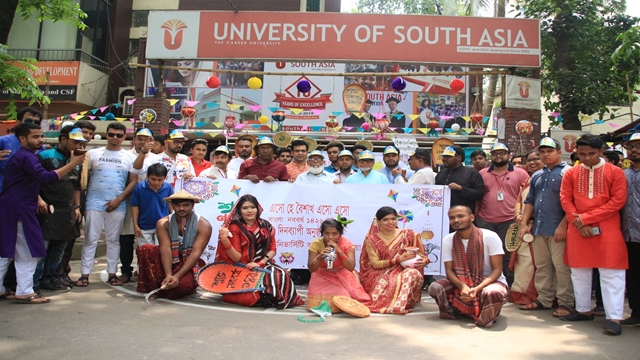
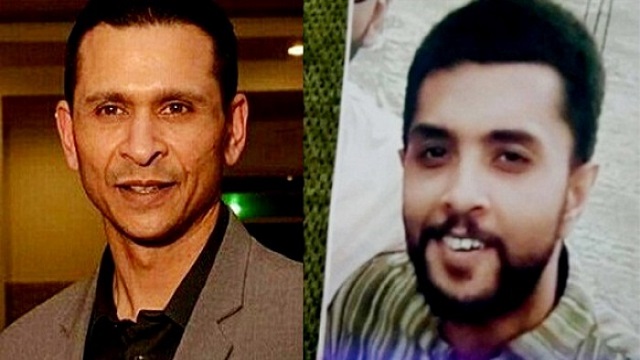
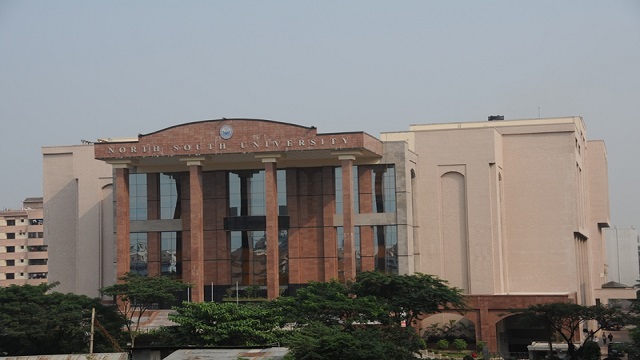

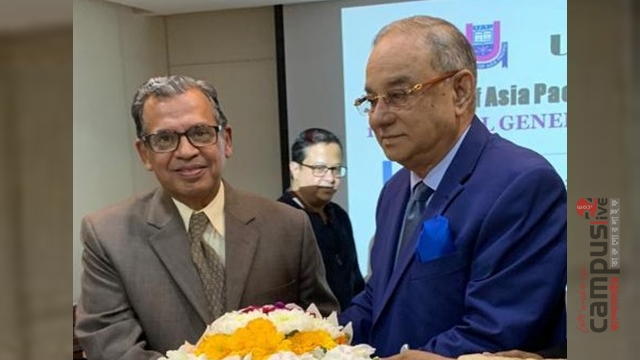

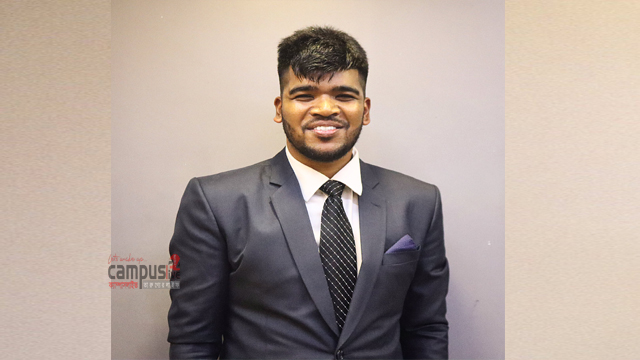
Share Your Valuable Comments: